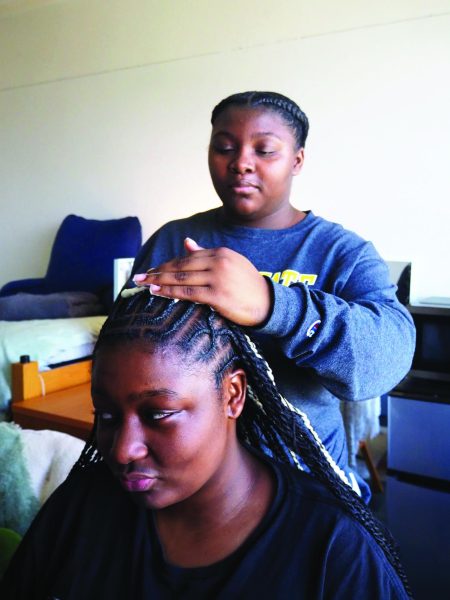Future teachers could see help from Praxis changes
February 14, 2018
Wayne State College is known as the teacher’s college, and it’s shown in its students. According to the Wayne State College website, education related majors are among the most popular majors at Wayne State, the top two being elementary education and special education. As popular as it is, the teaching profession sends its students through some rigorous obstacles, like student teaching and specialized classes. One aspect of becoming a teacher— taking the Praxis tests— has attracted the attention of education majors in Nebraska.
According to the Praxis website, the Praxis tests are used to measure the teaching candidates’ knowledge and skills to determine how able they are to teach and earn their degree and certification. The Praxis comprises two tests: Praxis I and II.
The Praxis I test consists of three exams that focus on reading, writing and mathematics, and is usually taken early in college. Those who take the test must score high enough (156 in reading, 162 in writing and 150 in mathematics) in order to be admitted further into teacher education and to apply for teacher certification.
The Praxis II is similar to the Praxis I, but covers a higher variety of topics beyond mathematics, reading and writing. Some of these topics are biology and general science, communication, geography, and psychology. Students who pass the Praxis II test will qualify to student teach. As the Praxis II not only tests students on teaching capabilities itself, it’s also used to determine if they can be registered as a highly qualified teacher under “No Child Left Behind Act.”
According to the Omaha World Herald website, the changes coming to the Praxis tests are in favor of students, as they are choosing to use composite scores rather than the requirement of scoring high enough in each category of the test. The total composite score needed to pass the test will be 468. This change was made so that those who take the test but fall just under the passing score would still be able to continue on their path to becoming a teacher. It may also be helpful to promising teacher candidates whose first language isn’t English.
Nicholas Shudak, dean of Education & Counseling, offers some insight on the Praxis test.
“To be clear, an inordinate number of students pass the test on the first try, but there are a number of students, and for a variety of good reasons, struggle passing all three,” said Shudak. “The proposed change has been welcomed by many students and stakeholders, however, the fact of the matter is that the test still must be taken, and, in order to meet the composite, students still have to perform reasonably well. As a School of Education & Counseling, we have a group that convenes regularly to meet and discuss this very issue. The decision we make will not be made lightly. This really isn’t an easy topic, but it is an important one to address.”
One student at Wayne State College, junior Hannah Lauer, shares her own experience with taking the Praxis test.
“In your first education class, one of the first things you have to do is that the Praxis Core exam,” said Lauer. “Every education major has to take that exam. It took around an hour and 15 minutes to complete all three sections. Some people were nervous, but after I was done, I thought, ‘This wasn’t as bad as I thought it was going to be.’”
Lauer also gave some advice for those who have yet to take the test.
“The education tutors have Praxis Core exam reviews where you can study them over.,” said Lauer. “One of my biggest pieces of advice is to take it very seriously, but don’t stress yourself out over it. If you don’t pass the first time, it’s ok. Take advantage of your resources, like the tutors and the library.”
While the journey of becoming a teacher is still one of effort and dedication, the Nebraska State Board of Education is hoping this will make things slightly easier for students hoping to be leaders for the next generations of Nebraska.









